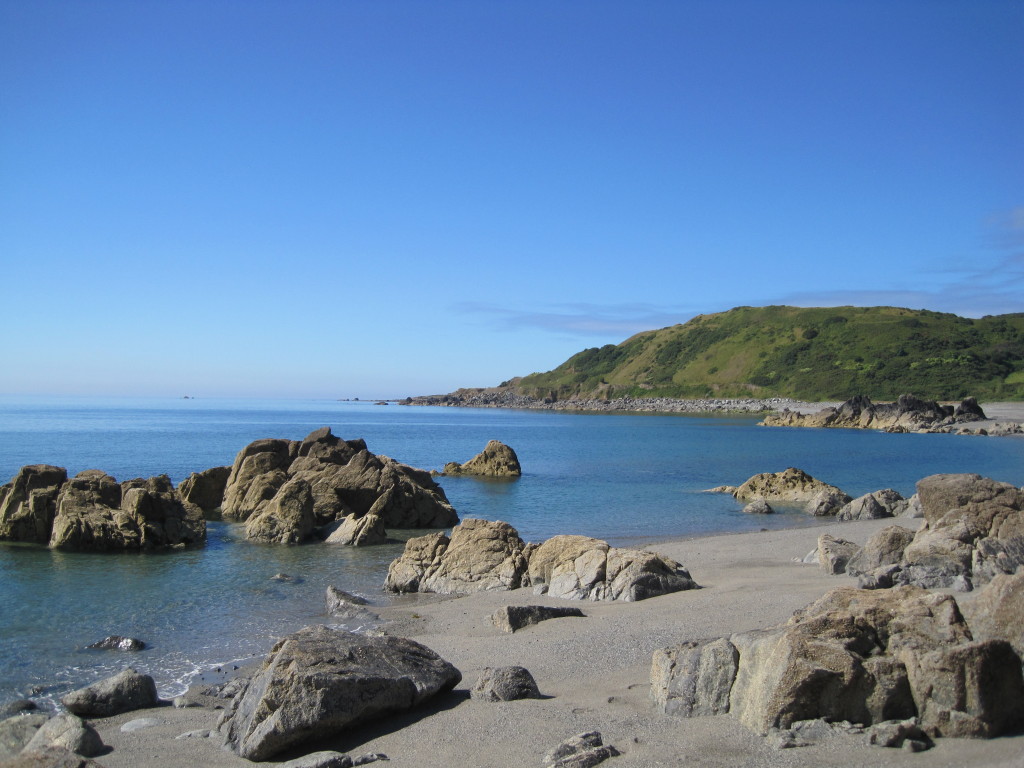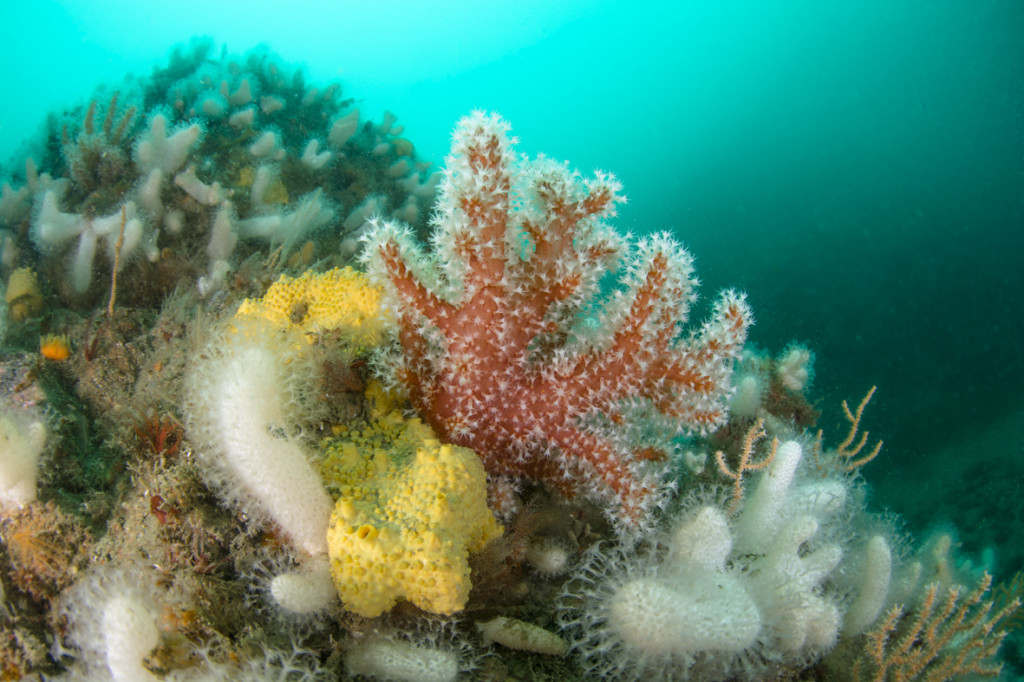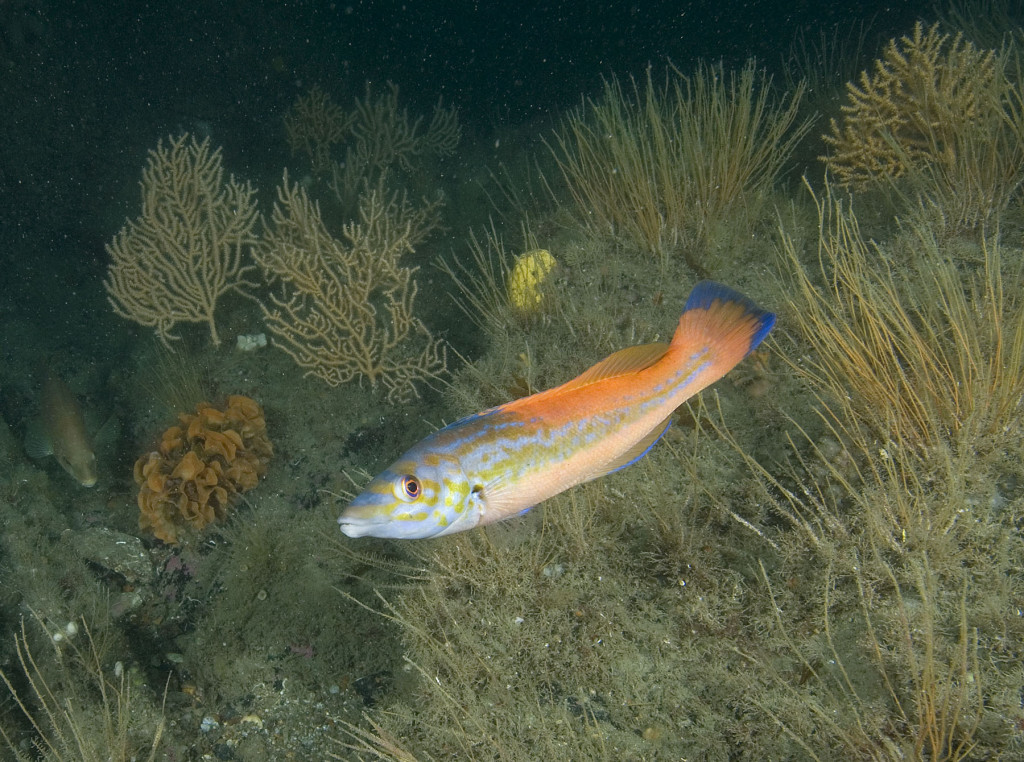Marine Life & Conservation
Marine Conservation Zone In Cornwall Under Threat From Super Quarry

Once again, industry seems to be flying in the face of conservation and the concerns of local people. Two companies, Shire Oak Energy and Shire Oak Quarries are trying to open a dormant quarry (Dean Quarry) which is situated on the beautiful Lizard Peninsula in Cornwall. The environments in which we live throughout the world are continually being destroyed in the name of short term profit and thoughtless greed. Once again the wishes of a local parish council seem to be being over ruled by County Council. Why are large companies allowed to over rule the wishes of local people and why is the time and money used in setting up protected areas wasted so easily? As we progress into the 21st century I always hope we can learn from past mistakes and protect precious environments that make our own living spaces so special. So often I am proved entirely wrong.
If you would like to help stop this destructive development then get involved and let your voice be heard.
I contacted Jo from Porthkerris Divers who operate in the area to ask her about the project. This is her reply:
The story so far….
Director (and majority share holder) of Shire Oak Energy and Shire Oak Quarries, Mark Shorrock, is also director (and shareholder) of several companies linked to the Quarry (Tidal Lagoon Power, Dean Quarry Mineral Rights, Tidal Lagoon Swansea etc). They propose to excavate 1.5 million tonnes in the first year alone, although figures are forever changing. Previous quarrying at its maximum was no more than 200,000 tonnes a year. The quarry has been dormant since 2008. The stone is to be used to build the proposed tidal lagoon in Swansea and possibly others, should permission be granted to build them, ironically in the name of “green energy” (“energy which is produced in a way that PROTECTS our natural environment”)!!
The company, Shire Oak Quarries has already submitted a land based planning application (security fencing, explosives store, buildings etc.). Although it was turned down by the Local Parish Council, it was approved by Cornwall Council.
The next step is that the company Shire Oak Energy are soon going to submit an application to build a 535m long 50m wide breakwater and jetties within the Manacles Marine Conservation Zone (MCZ) which borders the old quarry, so that they can load 10,000 tonne barges 24/7.
Many people and organisations have huge concerns about this project and particularly the breakwater and jetties within the actual MCZ. The quarry is only a few hundred meters from houses and the local primary school in the village of St Keverne. We have been told by Mark Shorrock – in a public meeting on 30th January in front of a village hall packed with worried locals – that if he didn’t get the permission for his breakwater and jetties that he would drive all the stone out through the village in lorries, past the primary school, houses, popular tourist attractions etc. For the amount of stone that they are wanting to extract a year, that would mean several hundred lorries a week.
The Manacles MCZ, where they want to build the breakwater, is renowned for its fast flowing tidal currents and clear waters, supporting an amazing range of marine life – jewel anemones, sea fans, mearl beds, plumose anemones, spiny lobster, etc. It is a perfect, protected breeding ground for many types of fish. The manacles MCZ is also an important area for marine mammals and the internationally protected basking shark, which are highly sensitive to noise. How will blasting, loading of the 10,000 tonne barges 24 hours a day etc. affect them? What effect will the breakwater have on currents and sediment transport processes? What effects will the day-to-day operations have on redistribution of sediments? The proposal is to bring in several 10,000 ton barges per week, which will have to be moved by tug boats. We would question how the propeller action of the tugs will interact with tidal and wave action to redistribute the sediment around the manacles MCZ.
The Manacles is also an extremely treacherous shipping area (hence the large number of shipwrecks in the area). Navigating the inner manacles with 2 tugs guiding a 10,000 tonne barge laden with rock armour several times a week, is surely an accident waiting to happen.
And talking of Ship wecks, the position of the actual breakwater is right on the site of a famous shipwreck called “The John”, which went down in 1855 with a loss of 194 lives (There is a whole website dedicated to it which you can find here). Not far from the breakwater also lies the famous shipwrecks ‘The Mohegan’, The ‘Andola’ and ‘The Spiridian Vagliano’ and the war ship ‘The Primrose’.
It is essential that the few areas of relatively pristine marine habitat we have left remain properly protected. Many conservation organisations and leading academics are already very concerned about the government’s failure to deliver the full network of MCZs that were recommended by the scientific community. The Manacles MCZ is one of only 27, out of 120 proposed. Luckily there are now calls for more to be designated… but it is important that we are able to also protect the ones already in place; otherwise, what is the point?
The proposed development of a breakwater and general up-scaling of operations at Dean quarry is therefore not only the first real test of what it means to be a MCZ, but will also be under intense scrutiny from conservation groups and the marine science community. The manacles MCZ looks set to serve as an important test case. This is the first major challenge to a MCZ and could set a precedent for the others.
So many people are very concerned about the proposed development and how it could negatively affect lives and livelihoods, health, safety, the environment, the AONB, SW coast path etc etc, but unfortunately a lot of people are not aware of the impacts on life under the sea. Now would be a great time to raise awareness of this particular issue, so that when this next application is made, people will have a better understanding of what is at stake.
The first stages of the plans have been covered by the following publications:
Daily Telegraph:
Daily Mail:
Others:
https://www.google.co.uk/?gws_rd=ssl#q=dean+quarry&tbm=nws
For more information, visit www.cads2015.com, or find the ‘Community Against Dean Superquarry’ on Facebook. For Marine Management Organisation plan documents, downloadfrom: https://marinelicensing.marinemanagement.org.uk/mmo/fox
Marine Life & Conservation
Paul Watson Released as Denmark Blocks Japan’s Extradition Bid

Renowned anti-whaling activist Paul Watson has been released from custody in Greenland after spending five months in detention. Denmark’s Justice Ministry rejected Japan’s request for his extradition, citing insufficient guarantees that his time already served in custody would be credited against any potential sentence.
The 74-year-old Canadian-American was arrested on July 21 in Nuuk, Greenland’s capital, when his ship docked to refuel. His arrest was based on a 2012 Japanese warrant related to a 2010 encounter in Antarctic waters. Japan alleged Watson obstructed operations and caused damage to a whaling research ship during efforts to disrupt illegal whaling. Watson has consistently denied these claims, maintaining his commitment to marine conservation.
Denmark, which oversees extradition matters for Greenland, concluded that while the legal conditions for extradition were met, the lack of assurances from Japan regarding time-served credit made extradition untenable.
In a video shared by his foundation, Watson expressed gratitude and relief, saying, “After five months, it’s good to be out… and good to know they’re not sending me to Japan.” He added that the most difficult part of his time in custody was being separated from his two young sons.
Watson is a pioneering figure in marine conservation, known for founding the Captain Paul Watson Foundation in 2022 after decades of activism with the Sea Shepherd Conservation Society. His bold efforts to defend marine life have earned him widespread support, including from celebrities and conservationists. His work has also been featured in the acclaimed reality TV series Whale Wars.
Watson’s lawyer, Jonas Christoffersen, praised the decision, stating, “We are happy and relieved that Paul Watson is now free.” He added that Watson is eager to reunite with his family and continue his vital work.
The arrest occurred while Watson’s vessel, the M/Y John Paul DeJoria, was en route to the North Pacific with a team of 26 volunteers to intercept a Japanese whaling ship. His foundation described the arrest as politically motivated and emphasized that Watson’s actions were focused on ending illegal whaling practices.
Japan resumed commercial whaling in 2019 after leaving the International Whaling Commission, asserting that whale meat is a cultural tradition. Conservationists, however, continue to challenge these practices, highlighting their impact on marine ecosystems.
Despite the challenges, Watson remains steadfast in his mission to protect marine life and bring attention to whaling practices. His dedication to ocean conservation has made him a globally respected advocate for the environment.
Marine Life & Conservation
12 Days of Zero-Waste Fish-mas

This holiday period, the Marine Conservation Society, the UK’s leading ocean membership charity, invites you to make some simple changes to eating fish this Christmas to help our seas.
Dr Kenneth Bodles, Head of Fisheries and Aquaculture at the Marine Conservation Society, said, “During the festive season, our consumption increases, but so does waste. Sustainability isn’t just about where food comes from – it’s also about how you use it. By reducing waste and making the most out of your seafood, you’re not only taking steps to be more ocean-friendly, but can also help to cut costs during what is often one of the most expensive times of the year”.
The Marine Conservation Society has compiled twelve tips on how to consume seafood sustainably with zero-waste this Christmas:
Buy whole fish instead of fillets
Instead of fillets, consider buying whole fish such as salmon, hake, or lemon sole. By adopting a “nose to tail” approach with cooking, whole-baked fish not only feeds a crowd, but also helps to minimise waste and maximise sustainability by using up every part of the animal, including bones, skin, and fat.
Make fish stock
Leftover fish bones or shells can be put to good use by boiling them to make a nourishing fish stock or bisque. This can be frozen and preserved for later use and makes for a flavourful base in a soup.
Make your own fish pâté
Avoid waste by turning leftover fish, such as smoked mackerel or salmon, into a delicious pâté by blending with cream cheese and lemon. Perfect when paired with crackers.
The sustainability of salmon and mackerel varies depending on where and how it is caught or farmed. For more information on green-rated options, check the charity’s Good Fish Guide.
Buy frozen
By purchasing seafood that is frozen or vacuum-packed, this helps to reduce waste by extending the shelf life of your food.
Fish pie
If you’re wondering what to do with leftover cooked fish, why not opt for a classic fish pie with mashed potatoes, leeks, and a cheesy sauce? A sure crowd pleaser on Boxing Day.
Use the head
Don’t forget the fish head! The meat is incredibly tender and flavourful. The charity recommends a cod’s head curry or recreating Fallow’s renowned cod’s head in siracha butter.
By stretching your ingredients further, not only is this a more sustainable way to enjoy seafood, but also cost-effective by repurposing leftovers and cooking creatively.
Boxing Day brunch
Mix leftover kippers or smoked salmon with scrambled eggs for a tasty, zero-waste, Boxing Day brunch.
For best choice, make sure you buy kippers, or herring, from the North Sea and the North Irish Sea.
Zero-waste storage
A top tip from the Marine Conservation Society to avoid waste is freezing fish offcuts to save for future use.
Crisp up the skin
Even leftover fish skin can be turned into a quick savoury snack by crisping it up in an air fryer with a little olive oil and salt.
Anchovies two ways
Leftover anchovies can either be blended with butter to make a delicious anchovy butter or tossed into pasta for a hit of umami flavour.
The charity recommends opting for anchovies caught in the Bay of Biscay for best choice.
Fishcakes
For an easy, zero-waste meal, leftover seafood trimmings can be mixed with mash and fried in breadcrumbs to make fishcakes.
Pickled mussels
Try pickling mussels in 1:1 vinegar and water, with a dash of sugar for a sustainable, zero-waste snack that can be enjoyed well beyond the festive season.
Mussels farmed in the UK are a seafood superhero. Grown using low-impact methods and harvested by hand, they get all the food they need from the sea around them. This makes them one of the most sustainable, ocean-friendly, and cost-effective seafood options.
Players of People’s Postcode Lottery have raised £6.6M towards the Marine Conservation Society’s vital work in making seafood more sustainable.
Laura Chow, Head of Charities at People’s Postcode Lottery, said: “Fish is a festive favourite for many, but making sustainable choices when it comes to how we buy and eat seafood makes all the difference for our ocean. Support from players of People’s Postcode Lottery has helped the Marine Conservation Society further its sustainable seafood work, so that we can all enjoy healthier, better protected seas.”
The Marine Conservation Society encourages you to make sustainable seafood choices a year-round habit, not just for Christmas. To check how sustainable the seafood on your plate is, you can visit the charity’s Good Fish Guide. The Guide helps consumers and businesses identify the most sustainable seafood using a simple traffic light system, based on where and how species are caught or farmed. Green is the best choice, amber means improvements are needed, and red indicates fish to avoid buying.
Zero-waste gift idea
Why not embrace a zero-waste Christmas by gifting a membership to support marine conservation? It’s a meaningful, low-waste gift that helps protect our ocean for generations to come. Memberships start from as little as £5 a month – the price of a sandwich and drink from your local coffee shop.
Find the latest sustainable seafood advice for wild-caught and farmed seafood on the Good Fish Guide, downloadable to your phone from www.mcsuk.org/goodfishguide.
-

 News2 months ago
News2 months agoIconic SS United States to become the World’s Largest Artificial Reef
-

 News3 months ago
News3 months agoBook Review – 52 Assignments: Underwater Photography
-

 Gear News3 months ago
Gear News3 months agoDYNAMICNORD – New German diving brand enters the British market
-

 News3 months ago
News3 months agoExploring Cenote El Pit: A Diver’s Dream
-

 Gear News3 months ago
Gear News3 months agoTry BARE drysuits (and maybe even win one!) this Friday with Sea & Sea at North West Dive Fest
-

 Marine Life & Conservation3 months ago
Marine Life & Conservation3 months agoBook Review: Coral Triangle Cameos
-

 Blogs2 months ago
Blogs2 months agoDive the Egyptian Red Sea this Autumn with Regaldive
-

 News3 months ago
News3 months ago2024 Ocean Art Underwater Photo Competition Announced





